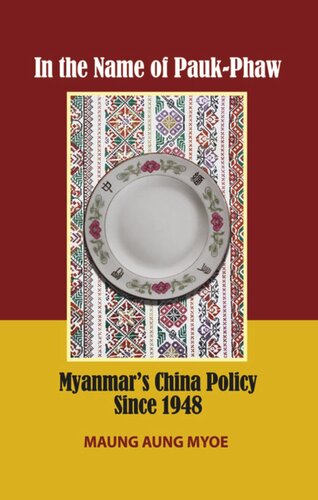

Most ebook files are in PDF format, so you can easily read them using various software such as Foxit Reader or directly on the Google Chrome browser.
Some ebook files are released by publishers in other formats such as .awz, .mobi, .epub, .fb2, etc. You may need to install specific software to read these formats on mobile/PC, such as Calibre.
Please read the tutorial at this link: https://ebookbell.com/faq
We offer FREE conversion to the popular formats you request; however, this may take some time. Therefore, right after payment, please email us, and we will try to provide the service as quickly as possible.
For some exceptional file formats or broken links (if any), please refrain from opening any disputes. Instead, email us first, and we will try to assist within a maximum of 6 hours.
EbookBell Team

4.7
76 reviewsSince its independence in January 1948, Myanmar has tried to find a way to deal with (at one time) ideologically hostile and traditionally chauvinistic China which has pursued a foreign policy aimed at restoring its perceived influence in Myanmar. To counter China’s attempts to influence Myanmar's foreign policy options has always been a challenge for the Myanmar government. Since the 1950s, successive Myanmar governments have realized that Myanmar's bilateral relations with the People’s Republic of China should best be conducted in the context of promoting the Five Principles of Peaceful Coexistence, the Bandung spirit and the Pauk-Phaw (kinsfolk) friendship. The term Pauk-Phaw is exclusively devoted to denote the special nature of the Sino-Myanmar relationship. This work argues that Myanmar's relationship with China is asymmetric but Myanmar skilfully plays the "China Card" and it enjoys considerable space in its conduct of foreign relations. So long as both sides fulfill the obligations that come under "Pauk-Phaw" friendship, the relationship will remain smooth. Myanmar has constantly repositioned her relations with China to her best advantage. Myanmar's China policy has always been placed somewhere in between balancing and bandwagoning, and the juxtaposition of accommodating China's regional strategic interests and resisting Chinese influence and interference in Myanmar's internal affairs has been a hallmark of Myanmar's China policy. This is likely to remain unchanged.